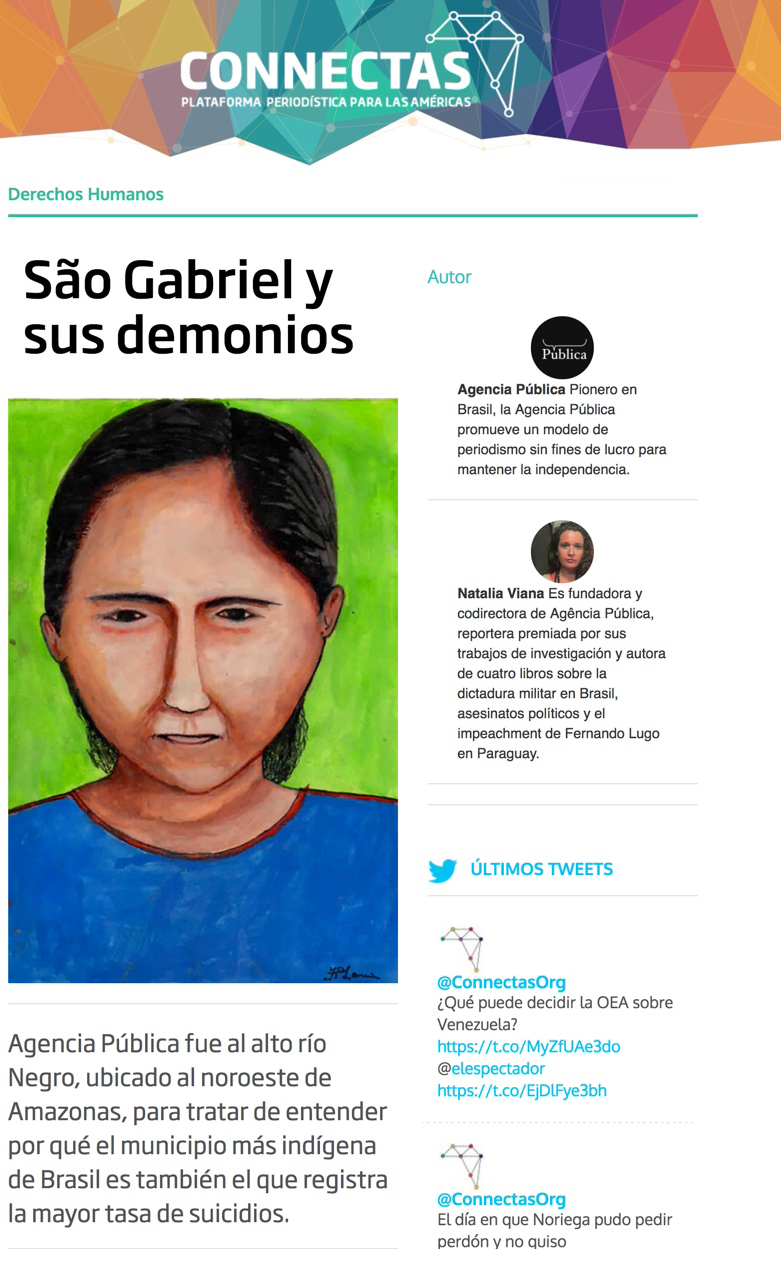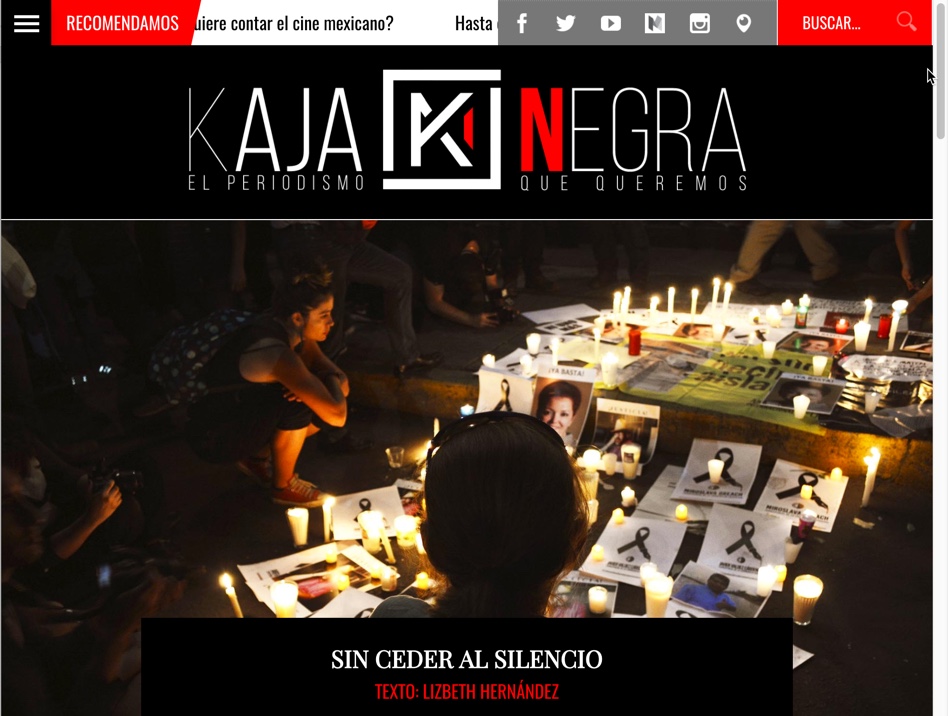IMPACT
PUBLISHING STORIES THAT MAKE A DIFFERENCE
Digital natives in Latin America are not just producing news — they are generators of change, promoting better laws, defending human rights, exposing corruption, and fighting abuses of power. They are driven to produce independent news in highly politically polarized countries — and some of them are paying a high price for it.
Reporting by digital natives inspires action
Throughout Latin America digital natives are breaking important stories, connecting with their audiences through social media, and inspiring citizens to take action.
Many of the digital natives in this study have produced stories that had significant real-world repercussions, from protecting endangered species, to leading universities to develop new policies, to forcing corrupt government officials to resign in disgrace.
Entrepreneurial journalists are breaking stories that other media in their countries often can’t (or won’t) cover because of government control, threats, or the influence of financial interests.
Once they break stories, however, national and international media are picking them up and sharing them with even broader audiences. (A few of these stories are included later in this section.)
Stories get picked up by national and international media
Getting republished in the international press is worth more than just increased credibility.
There are precedents in Latin America that suggest pressure from the international community has led (or shamed) governments to take action.
International media attention also helps digital natives build credibility, strengthens their position among colleagues and peers, and validates their work and the quality of their reporting.
Of the sites surveyed, 72% said their original journalistic work led to coverage in the national news media in their countries. More than two-thirds can trace their reporting and investigative stories to show they were picked up by international publications, most notably in the New York Times, BBC, Al Jazeera, Univision, and The Guardian.
In many cases, the digital natives allege that larger media organizations simply appropriate and republish their images, videos, and other information without giving them credit.
However, we did find some cases where digital news entrepreneurs have developed relationships and regularly submit stories to national media, gaining readers or much-needed income from the relationships.
As traditional media cut staff, digital players may find growing opportunity to sell their content through syndication deals.
They could also leverage backlinks to their sites to drive more traffic and draw in audiences from all over the world.

“We want the public debate to be based on data and facts, not on ideological preferences, prejudices, partisan interests, or mere negligence or superficiality.
With the data and verification that we share, we contribute to improving the level of knowledge and understanding of public events and increase the transparency and depth of the debate.”
— Mission statement,
Chequeado, Argentina
Stories with impact
Universities draft new policies after sexual harassment exposé
(México) Distintas Latitudes: In 2016, Distintas Latitudes conducted two investigations of sexual harassment at universities.
The first revealed that only four of 32 Mexican universities studied had a protocol for handling student complaints about sexual harassment. The second expanded the investigation to 63 universities in 11 countries in Latin America.
Their stories about how universities were responding to complaints of sexual harassment were republished in local media, as well as Univision, PorCausa, and Animal Político.
As a result, PAN, a major political party in Mexico, called on universities to take action. In August 2016, UNAM, the country’s largest university, made public its protocol for handling cases of sexual harassment and violence.
The Universidad Iberoamericana in Mexico, which had been much criticized for its handling of such cases, also published its protocol.
Vice News followed up on the Distintas Latitudes report by expanding the focus to include other countries in the region.
Their article on sexual harassment at universities in Colombia resulted in the Universidad Javeriana in Colombia starting to develop its own protocol as well.
Supreme Court candidate loses support after sexist attitudes revealed
(Brazil) Justificando: After Justificando revealed the anti-feminist and homophobic comments made by a judge who was a candidate for the Supreme Court, the Brazilian Institute of Family Law (IBDFAM) denounced him, Brazil’s President rescinded his support, and the coverage effectively ended his candidacy.
Presidential plan derailed after electronic voting problem exposed
(Argentina) El Gato y la Caja: Ex-President Cristina Fernández de Kirchner re-tweeted an article published by El Gato y la Caja in Argentina on the possibility that electronic voting could be manipulated.
The article and the resulting public uproar may have played a role in derailing President Mauricio Macri’s push to implement the system.
The article and Kirchner’s response were highlighted in major media outlets such as Infobae and Diario Registrado.
Phony business investigation leads to governor’s arrest
(Mexico) Animal Político: The former governor of the state of Veracruz in Mexico went on the run after coming under investigation for corruption as a result of reporting by Animal Político.
Their story, The Phony Businesses of Veracruz, was picked up in the international press, including by AP and The Guardian.
The coverage led to an investigation by the Mexican government, which found millions of dollars and more than a hundred bank accounts linked to the former governor, Javier Duarte, who was ultimately arrested in Guatemala.
Disaster victims compensated after secret agreements exposed
(Brazil) Agência Pública: After the Mariana dam burst in Brazil, releasing toxic waste from iron-mining operations, the federal government and mining companies reached a secret agreement that spelled out which victims would be compensated and for how much.
When Agência Pública broke the story and pointed out that the victims would be excluded from any discussions on financial compensation, President Dilma Rousseff intervened and requested that representatives of the victims be part of the council in charge of these decisions.
Mexican news site inspires audience to protest Internet reforms
(Mexico) Sopitas: In 2014, when the Mexican Senate passed a constitutional reform that affected control of the internet and access to radio and television bandwidth, Sopitas, a website focused on general news, entertainment, and sports, played an important role in informing the community about potential problems with the proposed legislation.
As part of their coverage, they published an article with eight critiques of the reforms from community leaders.
One noted that the national government’s $150 million advertising budget was distributed to reward friendly media and cut off opponents, and another pointed out that the reforms did not endorse free universal access to the internet.
Sopitas, which has a strong social media following with more than 3 million Twitter and Facebook followers, urged its community to take to the streets in protest and then covered those demonstrations with photos and videos.
The hashtag #EPNvsInternet (EPN, the president’s three initials) became a trending topic.
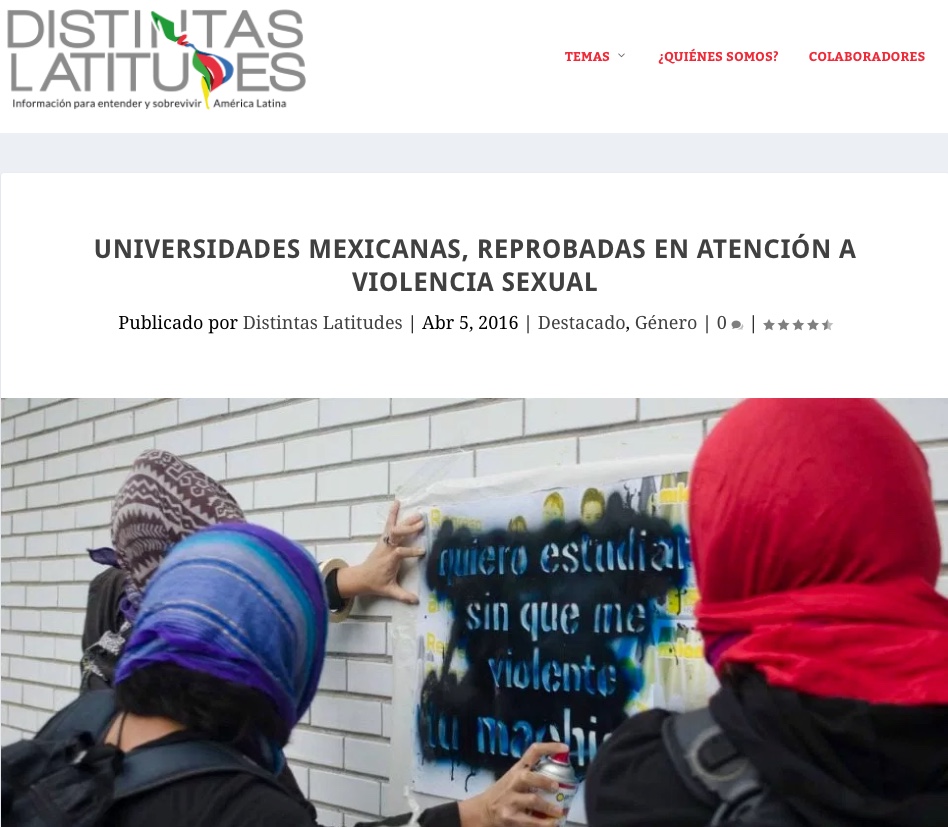
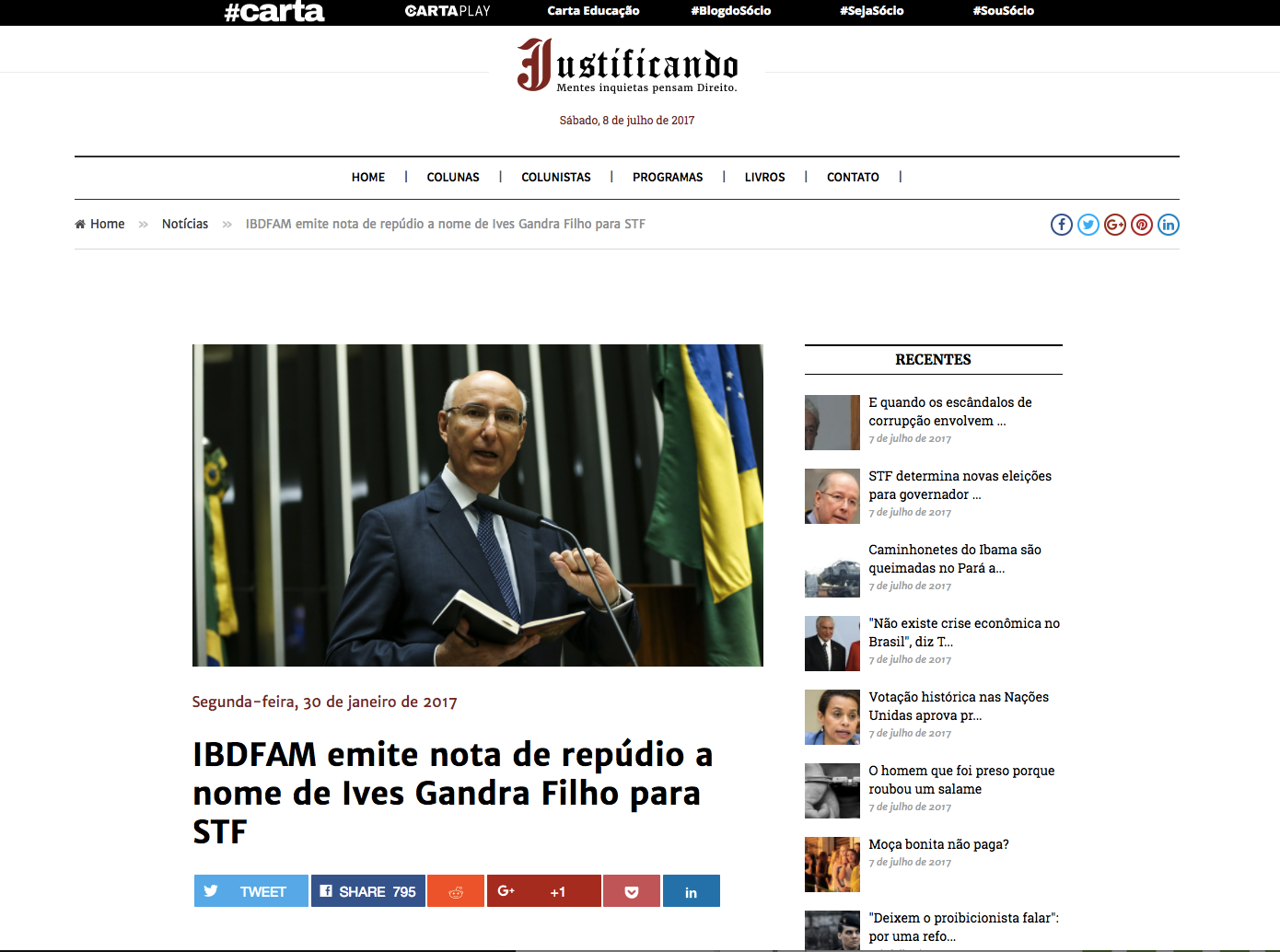
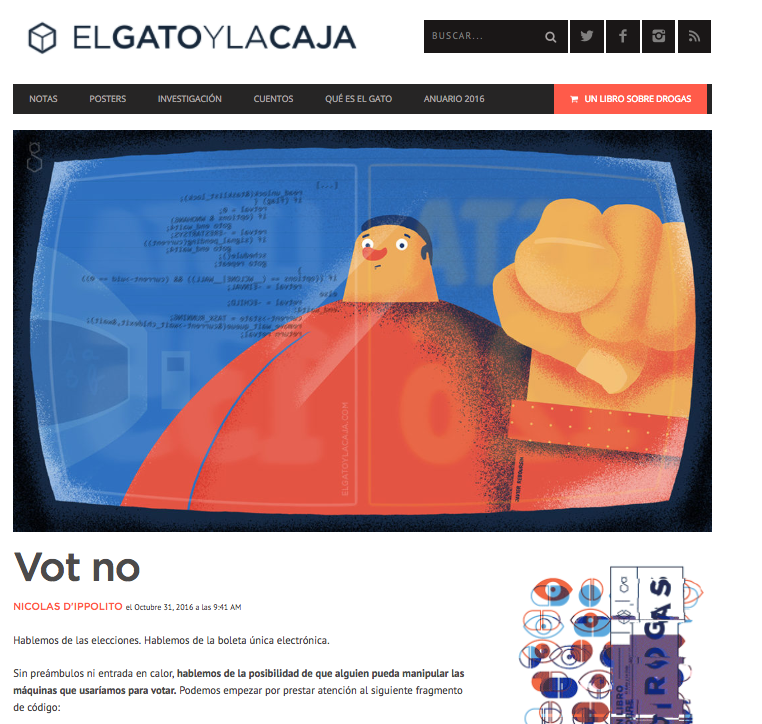

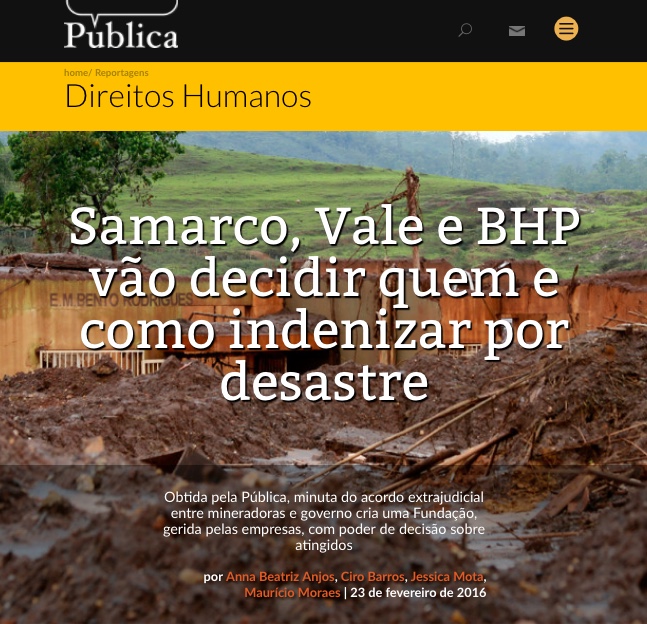
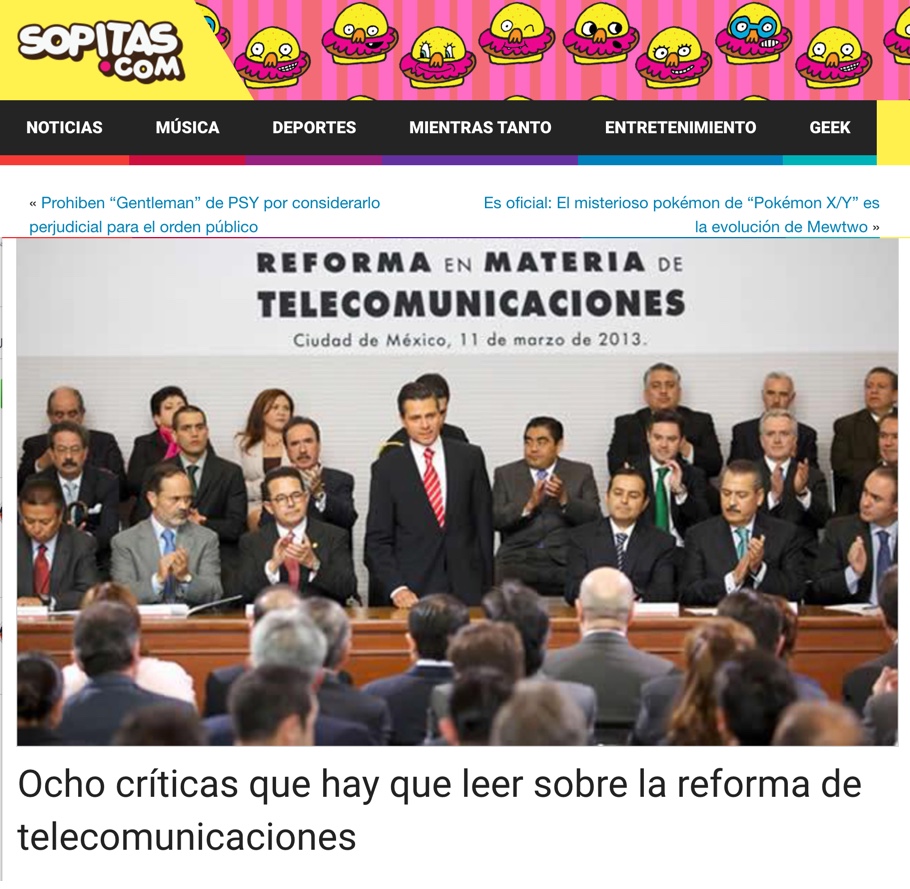
Case study: Fact-checkers love the truth
Many of the media in this study define themselves as dedicated to presenting information that is fact-based, verifiable, and not associated with party politics.
Eleven of them devote at least some of their staff and resources to fact-checking. The largest and most successful of these is Argentina’s award-winning Chequeado.
In 2013, Chequeado, a non-partisan, nonprofit, became the first media organization in the world to offer live fact-checking during a political debate. With a team of trusted experts on hand, and reams of research on each candidate’s platform, the small team at Chequeado verified all the candidates’ statements in real time.
The live fact-checking was a hit, and it was replicated soon after at The Guardian and PolitiFact, said Executive Director Laura Zommer, a well-respected leader in Poynter’s global network of fact-checking sites.
Chequeado also broke the story about President Macri’s failure to report assets from eight of his businesses on required financial disclosure documents. That story was picked up by La Nación, Clarín, and many other media.
Chequeado was founded in 2010 by a chemist, a physicist, and an economist.
Operated by La Voz Pública Foundation it is considered the first fact-checking site in Latin America. Chequeado has generously shared its research methods and tools in training sessions and seminars that have helped to launch or strengthen the work of more than a dozen other fact checking sites throughout the region.
Chequeado also uses comics, humorous animations created in alliance with the millennial mobile site Uno, and public art installations to expose and share the truth.
For example, they set up two boxes in front of a public building in Buenos Aires with signs that prompted passersby to place a ball in either a box that read “I love the truth” or a a box that read “the truth doesn’t matter to me.” Video of their experiment is on YouTube.

Awards and honors boost credibility, connections, and confidence in editorial quality and independence
When trust is at stake, journalism awards are an even more important signal of credibility and quality.
Outside recognition can boost loyalty and respect from readers, and awards events help build connections among journalists, and strengthen their networks with foundations, philanthropic investors, and other allies who support them.
Two-thirds of the media organizations we interviewed for this study had won national or international awards from journalism or humanitarian groups, evidence of the quality of their reporting and the recognition they are receiving.
The Panama Papers wins Pulitzer Prize
Two of the publications in this study, Connectas of Colombia and Aristegui Noticias of Mexico, were among the team of original reporting partners on the Panama Papers investigation that won the Pulitzer Prize.
The Pulitzer Prize Board lauded the year-long investigation for “using a collaboration of more than 300 reporters on six continents to expose the hidden infrastructure and global scale of offshore tax havens.”
The award is the latest in a series of accolades for the globe-spanning reporting effort by the International Consortium of Investigative Journalists, McClatchy, the Miami Herald, Süddeutsche Zeitung and other media partners.
(Read the full article at icij.org.)
Digital Natives sweep 2016 Gabo Awards
2016 marked a turning point for digital natives. For the first time, digital natives swept the Gabriel García Márquez Awards – winning a prestigious honor usually dominated by major newspapers.
In 2016, three of the media studied in the report took home prestigious prizes during the Gabo Festival in Medellin, Colombia.
Agência Pública won for its investigative report “São Gabriel y sus demonios,” on the abnormally high rate of suicides in Sao Gabriel, which has the largest indigenous population in Brazil. In addition, Agência Pública’s won the Vladmir Herzog Award in the Internet category in 2016 for it’s special report about how the homes of 100 families were destroyed to make way for construction for the Olympic Games.
La Silla Vacía won the Gabo Award in 2016 for its articles on the peace negotiations between the government and the FARC guerillas. In 2014, La Silla won a Gabo for Proyecto Rosa, its in-depth study of a human rights activist who was tortured by right-wing paramilitaries. Proyecto Rosa was also honored by the German Ministry for Cooperation and Development. In 2016, La Silla Vacia was also honored with the Prince Claus Prize from Holland for its contribution to democracy.
A team from Repórter Brasil captured a Gabo in 2016 for their video and photo coverage over four years of how the construction of a factory affected a nearby fishing village and its people.
Early recognizition fosters credibility
The Argentinean fact-checking site Chequeado, was honored with a Gabo award for innovation in 2015 and was a finalist in 2013.
This early recognition boosted Chequeado’s reputation and helped them become a leader in the region providing training, inspiration, and support to other journalists. More than a half dozen other fact-checking sites credit the team at Chequeado with helping them launch their own projects.
Aristegui Noticias honored for reporting
The investigative reporting team at Aristegui Noticias won a share in the glory of the National Journalism Prize in 2016, for their role in investigating the killing of 16 unarmed civilians by federal police in Apatzingán. Freelance writer Laura Castellanos wrote the story for the daily El Universal, but after they decided not to publish it because of its explosive nature, Aristegui Noticias, Univisión, and Proceso, joined forces to publish her work.
Aristegui Noticias also won the Gabo for its 2015 investigation that revealed President Enrique Peña Nieto’s wife had bought a $7 million home in Mexico City with a loan from a company whose owner had received millions in contracts from Peña Nieto during his time as governor of the state of Mexico. As a result of their coverage, the government canceled a multi-million-dollar contract with that company to build a high-speed rail line. The president’s wife paid back the loan, and the president himself apologized publicly to the Mexican people.
Other award-winners include
Kaja Negra of Mexico won the National Journalism Award from the National Council for the Prevention of Discrimination, plus many other awards for reporting on race and gender.
Caja Rosa, of Argentina, was nominated for an award from the Online News Association (ONA) in 2016. In 2015, Agência Pública was part of a group of 20 media outlets from around the world, coordinated by ICIJ, that won an ONA award for their work on an investigation of the World Bank.
Sin Embargo of Mexico received the PEN Freedom of Expression Award and the National Journalism Prize several times.
El Gato y la Caja of Argentina won a UNESCO award for scientific coverage.
Linguoo of Argentina, which won the LatAm UNESCO and MIT Under 35 awards, as well as a Google-Knight Fellowship.


